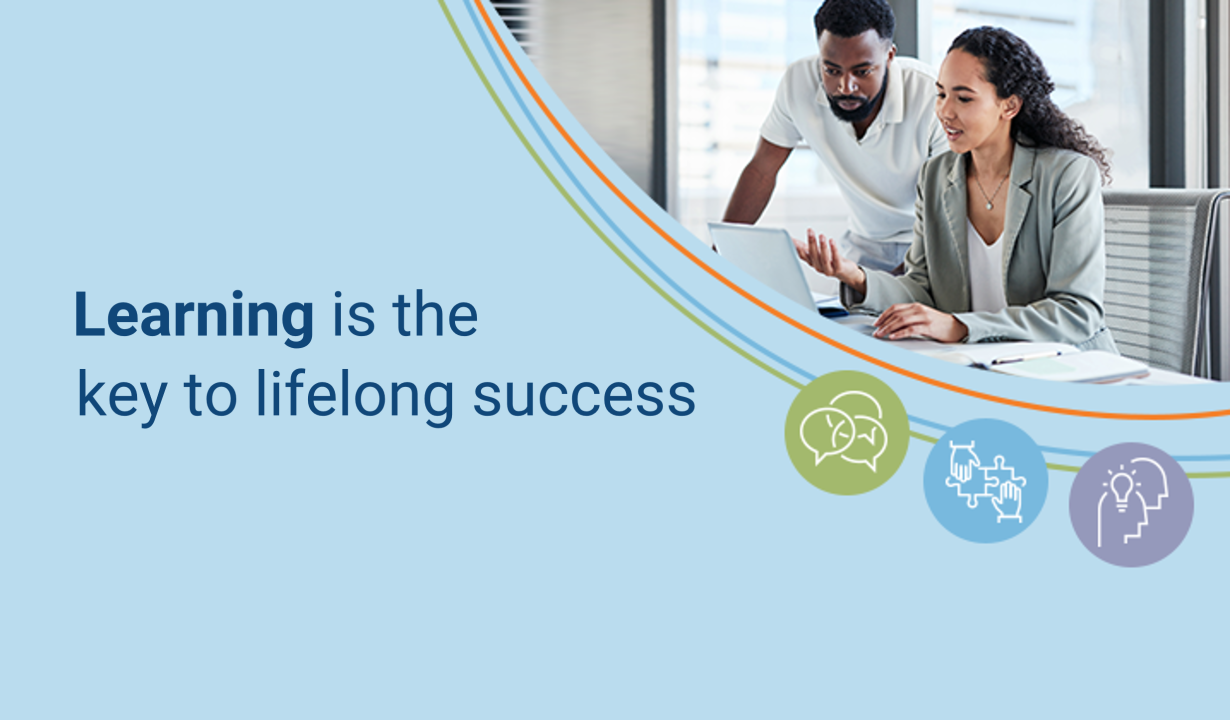Why Continuous Learning is Key to Success in Entrepreneurship
Learn why continuous learning is important for entrepreneurs, and how to incorporate it into your daily routine.
KEY TAKEAWAYS
- Continuous learning is important for entrepreneurs to stay ahead of the competition, make informed decisions, and identify new opportunities.
- Successful entrepreneurs continuously learn and adapt to changes in their industry.
- Learning from past experiences can help entrepreneurs make better decisions in the future.
- Continuous learning can help entrepreneurs analyze data, understand customer needs, and anticipate trends.
- Effective time management, low-cost or free resources, and embracing change can help entrepreneurs overcome barriers to continuous learning.
- Online learning platforms, mentorship and coaching, networking and collaboration, and industry events and conferences are useful tools and strategies for continuous learning.
- Prioritizing continuous learning can lead to personal and professional growth and success for entrepreneurs.
As an entrepreneur, your ability to innovate and stay ahead of the competition is key to achieving success. And one of the most important ways to do that is through continuous learning. Continuous learning involves actively seeking new knowledge and skills to improve personal development and stay up-to-date with the latest trends and practices in your industry. It not only helps you make informed decisions but also allows you to identify new opportunities and be more innovative. In today’s fast-paced business world, entrepreneurs who prioritize continuous learning are more likely to achieve long-term success. This article will explore the importance of continuous learning in entrepreneurship and how it can lead to personal and professional growth. You’ll also find out effective tools and strategies for continuous learning and provide real-world scenarios to illustrate their importance.
Background
Entrepreneurship is the process of creating or starting a new business venture to make a profit. It involves identifying a need in the market and developing a product or service that meets that need. Entrepreneurship is an important driver of economic growth and job creation, and it plays a critical role in driving innovation and progress.
Explanation of Entrepreneurship and Its Importance
Entrepreneurship is crucial for the growth and development of any economy. It drives innovation and progress by encouraging the creation of new products, services, and technologies. Entrepreneurs are often willing to take risks and pursue new ideas, even in the face of uncertainty and potential failure. This willingness to take risks and innovate is what drives progress and helps to create new markets and opportunities.
Entrepreneurship is also an important driver of job creation. New businesses and startups often hire employees, creating new job opportunities and contributing to the overall health of the labor market. In addition, successful entrepreneurs often go on to invest in other businesses and ventures, further contributing to economic growth and job creation.
Brief Discussion on the Need for Continuous Learning in Entrepreneurship
To be successful as an entrepreneur, it is important to constantly learn and grow. This is because entrepreneurship is a constantly evolving field, with new challenges and opportunities emerging all the time. By continuously learning and developing their skills, entrepreneurs can stay ahead of the curve and remain competitive in the market.
Continuous learning can take many forms, including attending seminars and workshops, reading books and articles, and networking with other entrepreneurs and business leaders. By investing in their personal development, entrepreneurs can gain new insights and ideas, and develop the skills and knowledge needed to innovate and succeed in their field.
Continuous learning is also important because it helps entrepreneurs to stay on top of new technologies and trends. As the business world becomes increasingly digital and interconnected, entrepreneurs need to be able to adapt and take advantage of new technologies to remain competitive. By staying up-to-date with the latest trends and developments, entrepreneurs can position themselves for success in the long term.
Innovation
Continuous learning is key to innovation, which is an essential component of entrepreneurship. By staying up-to-date with the latest trends and developments, entrepreneurs can identify new opportunities and develop new products and services that meet the changing needs of the market. Innovation is critical for entrepreneurs because it enables them to stay ahead of the curve and create new markets and opportunities.

Photo:
LinkedIn
In summary, continuous learning is essential for success in entrepreneurship. By investing in their personal development and staying up-to-date with the latest trends and developments, entrepreneurs can position themselves for long-term success and drive innovation and progress in their field.
The Benefits of Continuous Learning in Entrepreneurship
Continuous learning is essential for entrepreneurs to stay relevant and competitive in today’s dynamic business landscape. Here are some key benefits of continuous learning for entrepreneurs:
Staying Ahead of the Competition
Innovation is a key driver of success in entrepreneurship, and continuous learning is essential for fostering innovation. By continuously learning about new technologies, industry trends, and customer preferences, entrepreneurs can develop innovative products and services that stand out in the market. This allows them to stay ahead of the competition and maintain a competitive edge.
Improving Decision Making
Entrepreneurship is all about taking calculated risks, and making informed decisions is crucial for success. Continuous learning helps entrepreneurs improve their decision-making abilities by providing them with the knowledge and skills they need to analyze data, anticipate trends, and understand customer needs. This allows them to make more informed decisions that are based on sound business principles.
Identifying Opportunities
Continuous learning also helps entrepreneurs identify new opportunities for growth and expansion. By keeping abreast of the latest industry trends and innovations, entrepreneurs can spot emerging markets and capitalize on them before their competitors do. This allows them to expand their business and tap into new revenue streams.
Continuous learning also promotes personal development, as entrepreneurs can learn new skills and improve existing ones. This not only benefits their business but also their overall professional and personal growth.
Overall, continuous learning is essential for entrepreneurs who want to stay ahead of the competition, make informed decisions, and identify new opportunities for growth and expansion. It promotes innovation, improves decision-making, and fosters personal development. By prioritizing continuous learning, entrepreneurs can achieve long-term success and make a positive impact in their industry.
Overcoming Barriers to Continuous Learning
While continuous learning is critical for entrepreneurship success, various barriers can prevent entrepreneurs from engaging in continuous learning. This section will explore some of these barriers and strategies to overcome them.
Time Constraints
One of the most common barriers to continuous learning is time constraints. Entrepreneurs often have a lot on their plate, and finding time to engage in learning activities can be challenging. However, effective time management can help entrepreneurs overcome this barrier. By prioritizing learning activities and setting aside dedicated time for learning, entrepreneurs can ensure that they are continuously improving their knowledge and skills.
Resource Constraints
Another common barrier to continuous learning is resource constraints. Many entrepreneurs may not have the financial resources to invest in expensive training programs or courses. However, there are various low-cost or even free resources available for entrepreneurs to learn from, such as online courses, podcasts, and webinars. Additionally, seeking out mentorship and coaching opportunities can provide valuable insights and guidance for entrepreneurs.
Resistance to Change
Finally, some entrepreneurs may be resistant to change and may not see the value in continuous learning. However, it is essential to understand that the business world is constantly evolving, and those who are resistant to change risk being left behind. Embracing change and continuous learning can lead to personal and professional growth, and ultimately, business success.
In summary, there are various barriers to continuous learning, including time and resource constraints, as well as resistance to change. However, by prioritizing learning activities, seeking out low-cost or free resources, and embracing change, entrepreneurs can overcome these barriers and ensure that they are continuously improving their knowledge and skills.
Real World Scenarios
To illustrate the importance of continuous learning in entrepreneurship, let’s take a look at two real-world scenarios of entrepreneurs who have prioritized continuous learning in their businesses.
Entrepreneur 1: A Tech Startup
John is the founder of a tech startup that specializes in developing mobile apps. He recognized early on that to succeed in such a fast-paced and constantly evolving industry, he needed to stay up-to-date on the latest technologies and trends. John invested time in attending conferences, networking events, and industry seminars to learn from other experts in the field. He also encouraged his team to engage in continuous learning by providing access to online courses and training programs. As a result of their commitment to continuous learning, John and his team have developed innovative products and services that have gained recognition in the industry, leading to rapid growth and expansion of their business.
Entrepreneur 2: A Food Truck Business
Samantha is the owner of a food truck business that offers unique and healthy food options. Even though the food industry is relatively stable, Samantha understands the importance of continuous learning in staying ahead of the competition. She regularly attends food industry conferences and trade shows, reads industry publications, and follows food blogs and social media accounts to stay updated on the latest food trends and consumer preferences. She also invests time in developing new recipes and testing out new ingredients to offer her customers a unique and exciting experience. Samantha’s commitment to continuous learning has resulted in a loyal customer base and the ability to stand out in a crowded market.
In both of these scenarios, the entrepreneurs recognized the importance of continuous learning in staying relevant and competitive in their industries. They invested time and resources into personal development, innovation, and staying ahead of the competition. By prioritizing continuous learning, they were able to develop innovative products and services that have led to business growth and success.
Tools and Strategies for Continuous Learning
Now that you have learned the benefits of continuous learning and some real-world examples of successful entrepreneurs who prioritize it, let’s explore some tools and strategies that entrepreneurs can use to implement continuous learning in their businesses.
Online Learning Platforms
Online learning platforms such as Coursera, Udemy, and LinkedIn Learning offer a wide range of courses on topics such as business strategy, marketing, and finance. These platforms provide entrepreneurs with the flexibility to learn at their own pace and on their schedule. They also offer the opportunity to learn from experts in various industries and to connect with other learners for collaborative learning.

Photo:
Cubo
Mentorship and Coaching
Mentorship and coaching programs provide entrepreneurs with guidance and support from experienced professionals in their respective fields. A mentor or coach can offer valuable insights and advice on specific challenges and opportunities, as well as provide accountability and motivation for continued growth and development.
Networking and Collaboration
Networking and collaboration with other entrepreneurs and industry professionals can be an effective way to learn from others and share knowledge and best practices. By attending industry events, joining professional associations, and participating in online forums and communities, entrepreneurs can connect with like-minded individuals and build valuable relationships.
Industry Events and Conferences
Attending industry events and conferences provides entrepreneurs with the opportunity to learn about the latest trends, technologies, and best practices in their respective industries. These events also offer the chance to connect with other entrepreneurs, industry experts, and potential customers, and to gain valuable insights and ideas for innovation and growth.
By incorporating these tools and strategies into their businesses, entrepreneurs can make continuous learning a priority and stay ahead of the competition. By investing in personal development, innovation, and learning, entrepreneurs can build thriving businesses.
Final Thoughts
Continuous learning is essential for entrepreneurs who want to succeed in today’s rapidly changing business landscape. By investing in personal development and staying up-to-date with the latest trends and technologies, entrepreneurs can innovate and stay ahead of the competition.
While there may be barriers to continuous learning, such as time constraints, resource limitations, and resistance to change, entrepreneurs can overcome these challenges by utilizing tools and strategies such as online learning platforms, mentorship and coaching, networking and collaboration, and industry events and conferences.
So, whether you are a seasoned entrepreneur or just starting, remember that continuous learning and personal development are critical to innovation and success. By committing to lifelong learning, you can build a thriving business that can make a difference in the world.


















































Comment Template